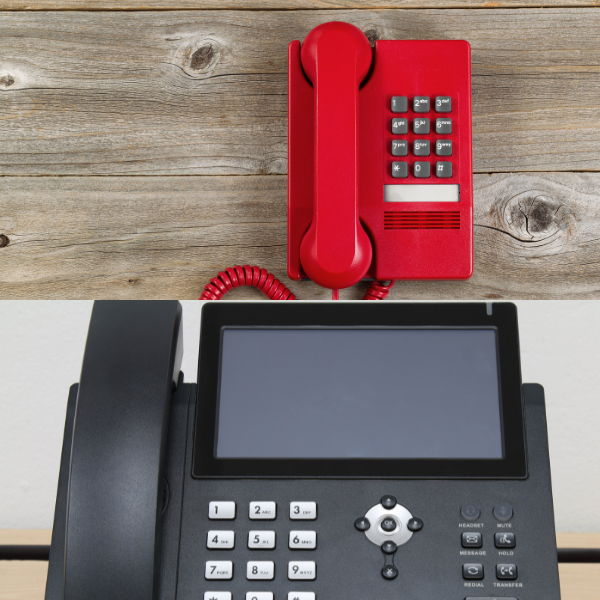Effective communication is essential for both homes and businesses in today’s interconnected world. With advancements in technology, Voice over Internet Protocol (VoIP) has become a popular alternative to traditional phone lines. But which one truly saves you more money? Let’s explore the costs, benefits, and practical applications of VoIP plans versus traditional phone lines.
Understanding VoIP Plans and Traditional Phone Lines
Before diving into cost savings, it’s essential to understand how each communication system works.

Traditional Phone Lines operate through Public Switched Telephone Networks (PSTN). These landlines require physical copper wiring and are connected through a local telecom provider. While they offer reliability, they often come with high monthly fees, costly long-distance calls, and limited scalability.
VoIP (Voice over Internet Protocol), on the other hand, uses the internet to transmit voice data. Instead of relying on traditional wiring, VoIP phone plans utilize broadband connections to facilitate high-quality calls. This technology provides flexibility, affordability, and advanced features that cater to both home and business users.
Cost Comparison: VoIP vs. Traditional Phone Lines
One of the most significant factors influencing a decision between VoIP home phone plans and traditional landlines is cost. Let’s break it down:
Initial Setup Costs
- Traditional Phone Lines: Setting up a landline requires physical infrastructure, including wiring and installation, which can be expensive.
- VoIP Setup for Small Business or Home Users: VoIP services generally require minimal hardware. A VoIP adapter or a VoIP-enabled phone is sufficient, significantly reducing upfront costs.
Monthly Service Fees
- Traditional Phone Lines: Monthly charges for landlines can range from $30 to $50 per line, depending on the provider and additional services like voicemail and call waiting.
- VoIP Phone Plans: VoIP providers offer competitive pricing, often ranging from $10 to $25 per month, with bundled features such as unlimited calling, voicemail-to-email, and call forwarding.

Long-Distance and International Calls
- Traditional Landlines: Long-distance and international calls can be expensive, with charges per minute that quickly add up.
- VoIP Services for Business and Home: Most VoIP plans include free or significantly lower rates for international calls, making them an ideal choice for frequent international communication.
Maintenance and Scalability
- Traditional Phone Systems: Expanding a landline system requires additional wiring and higher costs.
- VoIP Setup for Small Business: Adding new lines or features is easy and cost-effective, making VoIP highly scalable for businesses.
Feature Comparison: VoIP vs. Traditional Phone Lines
Beyond cost savings, VoIP services for businesses and homes provide a range of advanced features that traditional phone lines simply cannot match:
- Call Forwarding & Routing: Redirect calls seamlessly to any device.
- Voicemail-to-Email: Receive voicemails directly in your inbox.
- Auto-Attendant: A virtual receptionist that directs callers.
- Conference Calling: Easily host multi-user calls without additional costs.
- Mobile Integration: Make and receive calls from your smartphone using your VoIP number.
Reliability and Call Quality
Reliability is often a primary concern when switching from traditional landlines to VoIP phone plans. While landlines are known for their stability, VoIP has greatly improved over the years. With a stable internet connection and the right VoIP provider, call quality is as good, if not better, than traditional landlines.
To ensure reliability:
- Use a high-speed internet connection.
- Invest in a quality VoIP service provider.
- Utilize backup power options in case of power outages.
Who Benefits the Most from VoIP Plans?
VoIP for Home Users
- Cost-effective solution for families making frequent calls.
- Ideal for those needing international calling at lower rates.
- Convenient features like voicemail-to-email and mobile integration.
VoIP Services for Business
- Small businesses can scale effortlessly without expensive infrastructure.
- Remote work is more accessible with mobile VoIP solutions.
- Advanced features enhance customer service and productivity.
Making the Switch: Is VoIP Right for You?
Switching to VoIP can lead to substantial savings, but it’s essential to evaluate your needs. If you require affordability, flexibility, and advanced features, VoIP is the clear winner. Businesses and home users looking for a cost-effective communication solution will benefit significantly from VoIP services.
Get Started with the Best VoIP Plans
If you’re ready to save on communication costs, explore the best VoIP phone plans with a trusted VoIP plans provider. Whether for home or business, the right VoIP setup can revolutionize the way you connect.
By switching to VoIP, you’re not just saving money—you’re embracing a modern, efficient, and feature-rich communication solution.
Related Blog:








